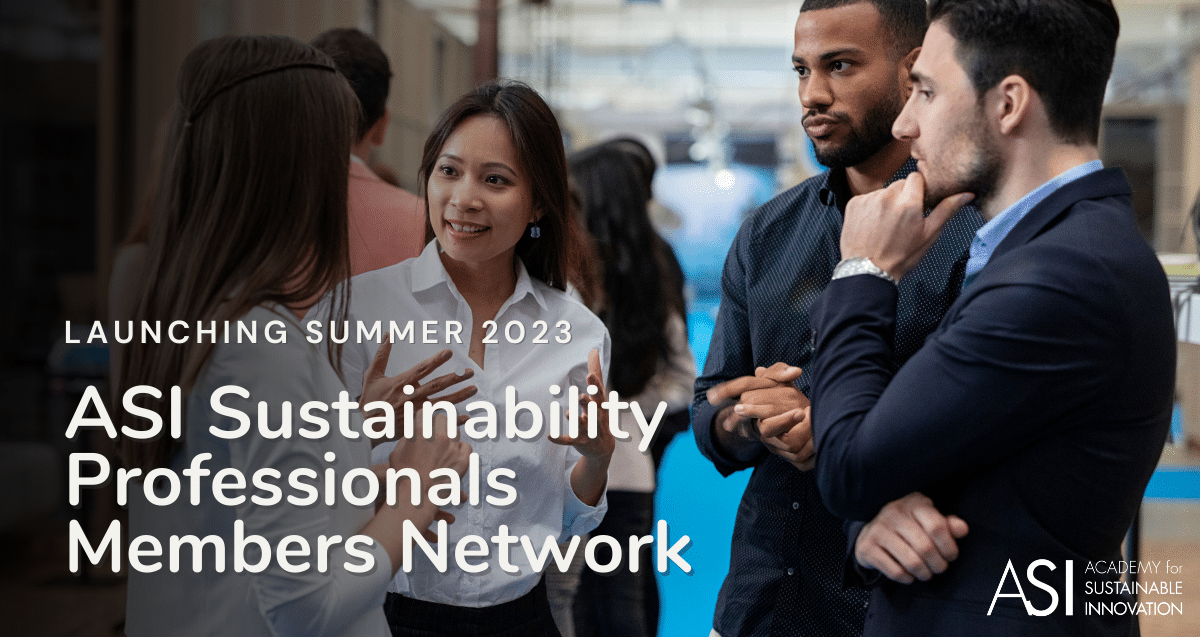Sustainability practitioners are leading the way to help reach Canada’s net-zero commitments. Their contributions are diverse, as are the roles they hold in organizations across the country. They’re leaders of ESG, CSR, Sustainability, Climate Action, Resiliency, Risk Management, Strategic Innovation, Social Impact, and more. They’re working in all sectors and organizational types.
They are tasked with some of the most time-sensitive, critical, and complex challenges as they work to help their organizations take meaningful and equity-centred steps toward climate action. It’s our belief that this particular group of professionals hold some of the most impactful yet demanding roles and we wondered what it might look like for ASI to put ourselves in service of these people.
So we asked them. And here is what we found.
We asked these professionals one single question and invited current practitioners to share their answers, and then rate their level of alignment with other answers that had been provided.
Our question was: What would help you have more impact in your work as a Sustainability Practitioner? (For example, you may need training/development opportunities, norms or policies changed, increased resourcing, better cross-sector collaboration, etc.).
The Results: What’s on the minds of sustainability practitioners?
Those working to nurture the necessary shifts to a low-carbon, socially-inclusive economy – where climate action and social justice are at the forefront of decision-making – have a clear perspective on what they need to make their work more impactful.
Let’s look at the top themes in the survey responses as these professionals articulate their biggest gaps to advancing their work:
Funding and resources
Tremendous change doesn’t happen without a significant investment of resources. Our survey respondents were matter-of-fact about the need for their work to be adequately resourced.
Funding and other financial supports were high on the list, taking three of the top five categories of topics mentioned. Those working in sustainability know climate action requires funding to move beyond ideas. Taking action costs money, and change will only come from good ideas being brought to life across all industries and sectors.
Beyond financial support, people also noted just how important it is to have staff in place and access to innovations and new approaches in the field. Sustainability work shouldn’t be a “side-of-the-desk” task, but a core focus of staffed roles. Roles that once focussed on emissions or effluents are now required to take a social and/or community impact lens, broadening the scope and encouraging systems-based considerations. Those in transition leadership need access to training and other talented professionals to have more impact.
In addition, those surveyed mentioned the need for mental health and wellness supports so that practitioners could continue to devote the time and energy needed to make an impact, without compromising their well-being. “Climate grief” is growing, and the impacts that it can have on practitioners is real; it requires dedicated resources to support those working to respond in these unprecedented times.
Stronger policy mandates and norms
Advancing sustainability and climate action will take more robust policy mandates at all levels of government. Proactive regulations and incentives were a primary concern for most survey respondents, with many noting that active government participation and engagement are needed to motivate others.
Survey respondents mentioned clear policy direction from federal and provincial governments as imperative to help get different organizations working in the same direction. This type of collective action toward a common goal can be compelling but only happens when everyone has strong mandates to follow.
As noted by our respondents, the government may have set solid climate goals and targets, but there remains a need for a multitude of programs and policies to ensure we can meet these targets.
Collaboration, community, and networking
Climate action cannot be driven by individuals and organizations working alone in silos. Only through collaboration across all sectors can we combine efforts to make large-scale, meaningful impact. Stronger connections across sectors would also help professionals learn from one another, reduce redundancies, and share data and strategies that could drive better analysis and problem-solving.
Networking opportunities, sharing ideas, and breaking down challenges could help sustainability professionals find better solutions and offer them much-needed connection and support as they enhance their impact. Building a strong community of practitioners in Canada can help keep talented people motivated to continue working on these problems without burning out and leaving for other disciplines.
It’s also important for those working in the sustainability transition to hear good news stories and successes that others are seeing from their efforts. Inspiration can help keep people engaged even when the work is challenging. It’s through inspiring stories that we can foster creativity to solve climate-related challenges from a place of active hope, rather than fear. These stories can also be shared externally, helping attract support and attention to important issues.
Stronger leadership and prioritization of issues
Experienced practitioners know that only strong leadership dedicated to climate action will keep sustainability goals an organizational priority when budgets and schedules run tight. Only when there is meaningful comprehension of and public commitment to sustainability goals will organizations be able to advance strategy and program development.
Meaningful climate action will require different leadership styles and frameworks than those which led to the creation of our current challenges – we need leaders who take collaborative, adaptive, and values-based approaches to guiding transition. Leaders will need to be champions of climate action, while recognizing the necessity of collaborative contributions over the “hero” model of leadership. Everyone in the organization has the capacity to weave sustainability into their work, but support to do so is needed from the top down. When leadership takes sustainability seriously, every department and team member can contribute to larger goals.
Knowing where and how to invest limited resources is a significant challenge for many leaders. Benchmarking against what others are doing in the industry can help drive progress toward climate commitments. Tried and proven frameworks are useful when sharing ideas or introducing sustainability change management initiatives across an organization.
Improved access to training, development, and mentorship
Sustainability practitioners want to be effective in their roles and to do so, they need appropriate training and skill development. Increased access to relevant training with easy entry points at any stage of people’s career journeys can help ensure we have talented professionals leading the way.
Leadership training is key to ensuring we have enough people with the necessary skills to lead on climate action. Regionally relevant training opportunities could help connect stakeholders and resources to help amplify and support sustainability efforts.
Professionals in the field want training opportunities to deepen their understanding of the impact of proposed changes and a better grasp of where to focus time, energy, and other resources. Training is also needed to enhance climate adaptation skills to support the integration of a climate lens into their organizations’ long-term planning and implementation.
Mentorship opportunities can help professionals accelerate their development in this field, increasing their impact on climate action in Canada and globally. With more access to these supportive relationships, sustainability practitioners can envision career paths, unlock opportunities, and create meaningful connections in the field.
Other notable practitioner insights
As we reviewed survey responses, we found several additional interesting insights. While the themes above proved consistently popular with all respondents, there were a few other highlights worth noting.
In some cases, the length of time that people have worked in sustainability affected their priorities. We found those with three or fewer years of experience in sustainability offered more responses showing a need for communication, collaboration, and innovation access. However, those working in this area longer (more than five years) leaned more toward necessary resources and the need for strong leadership, especially when the path is challenging.
Some responses may have been influenced by the sector in which a respondent currently works. Those in the public sector flagged resources as the top priority, with leadership a close second, while those in the private sector highlighted the need for leadership, regulations, and policy direction. In the non-profit sector, a balanced list of priorities included the need to share good news stories, industry benchmarks, collaboration, and increased resourcing.
ASI and the path to sustainable transitions
Sustainability practitioners have a unique perspective on how Canada can continue to make necessary shifts toward net-zero. These insights can be powerful drivers of change as we learn what’s needed to achieve our commitments to climate action.
These professionals have a clear view of what would help them have more impact in their roles. Communication and collaboration to share these perspectives can help us create more opportunities for those working in the field – today and in the future.
At ASI, we have designed our transition leadership programming to meet the needs of Canadian employers as well as both established and upcoming sustainability practitioners. Our goal is to facilitate these connections and conversations to build strong and resilient networks of professionals who can share promising practices, spark new ideas, and offer support through shared challenges.
The ASI Sustainability Professionals Members Network

The ASI Sustainability Professionals Members Network, launching Summer 2023, will host a space for leadership-focused learning, peer-to-peer sharing, and networking across sectors. We are hoping that we can offer an accessible and highly valuable space for sustainability professionals to strengthen both their leadership skills as well as their networks across the country.
Subscribe to our newsletter and be the first to hear about our Members Network launch and upcoming transition leadership events!
Browse our Programs page to learn more about all of ASI’s programming and research work, and get in touch if you have any ideas or questions.


